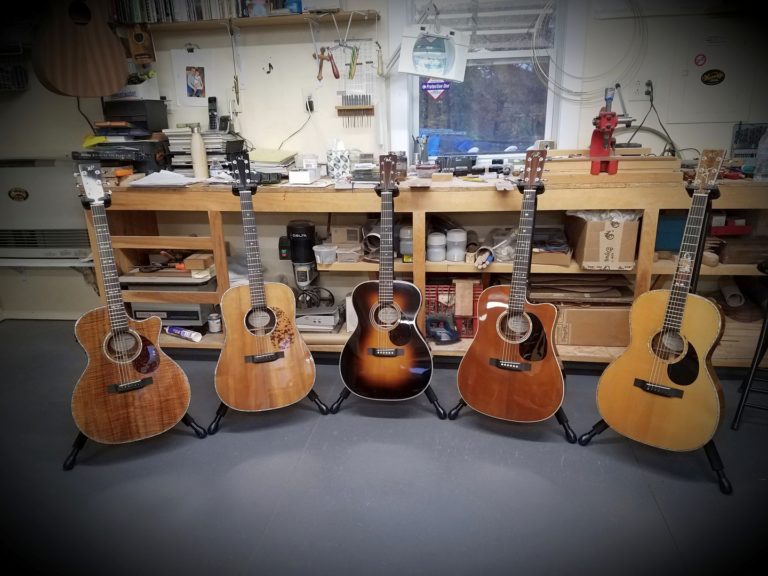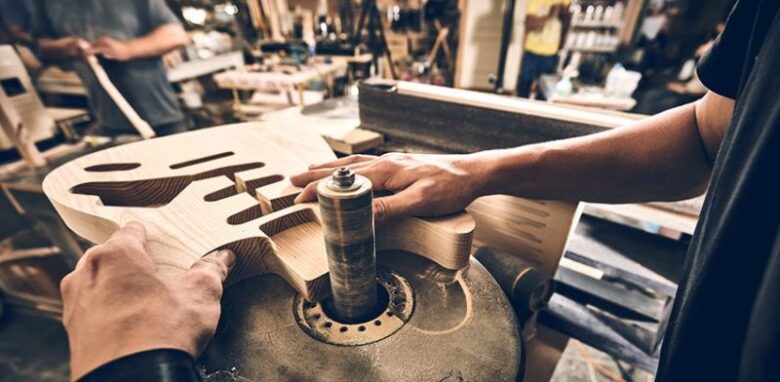Have you ever dreamed of walking out of the office for one last time and journeying down a new career path that ends with you crafting guitars? Well, it’s not uncommon for people to get bored with their office jobs and yearn for a position that allows them to be creative and use their hands to craft.
With this in mind, we have advice on how to become a guitar luthier in this guide! Becoming a professional Guitar Luthier will put you in position to build guitars for some of the world best musicians, including some of the instructors at The Note Room Academy of Music.
Getting Started
Before anything else, make sure this is a career path that really holds your interest. Currently, there are more luthiers than the industry requires because they’re a victim of their own success. After building or repairing to a high standard, guitars can stay healthy for many decades. We would never want to steer you away from this job, but you need to be determined to compete with the very best.
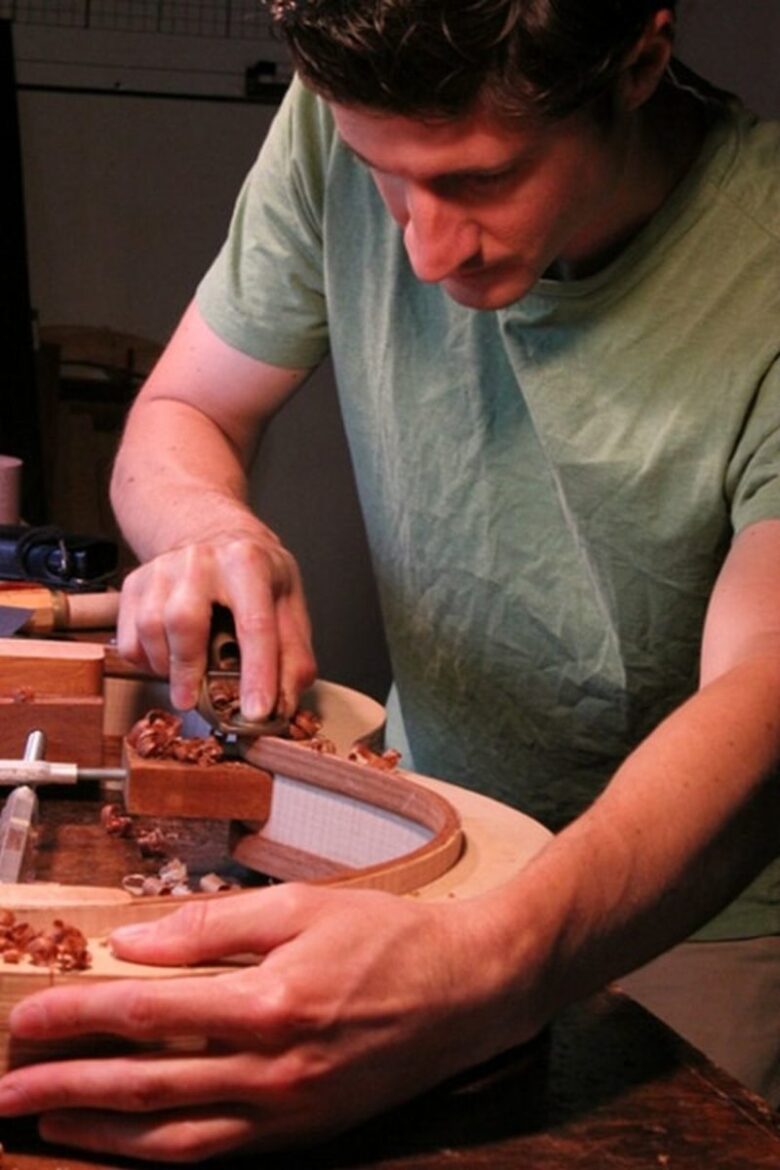
If you’re really sure, hold onto your day job for just a little while longer (sorry!). Sadly, many make the jump too soon and they don’t make enough money to survive. Eventually, they’re forced back into the office and lead a life where smiles are few and far between.
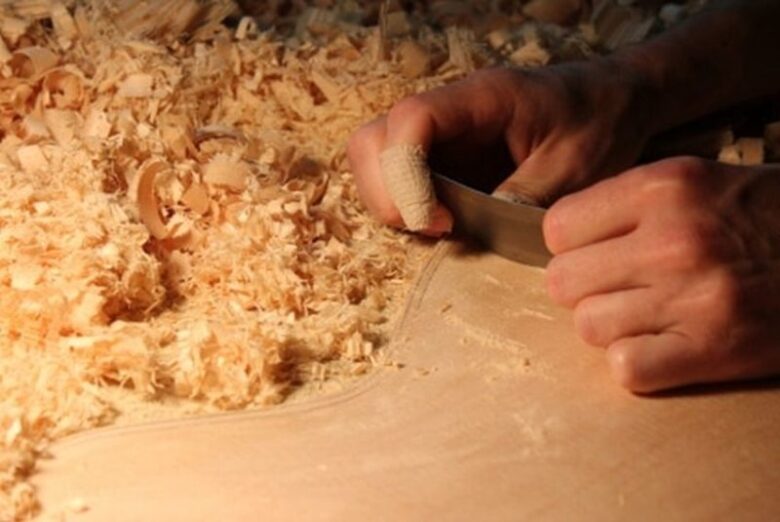
Instead, set up a small workshop in a spare room or garage and offer your services to friends, family, and the local neighborhood. If you’re trying to make a living from the very start, this will be too much pressure and the odds of success will be very small.
Learn and Practice
As well as researching online, take a class or, if this isn’t an option, contact a local luthier and see if they’re willing to lend you some time. In fact, many are able to become an apprentice under an experienced professional and this allows them to learn the tricks of the trade. Elsewhere, take advantage of internet resources, videos, and more.
In terms of courses, there are many luthier schools worth your consideration. Over time, you’ll learn how to select, shape, and finish wood. With these courses, you’ll also learn from a professional who knows exactly what a beginner luthier should and shouldn’t be doing.
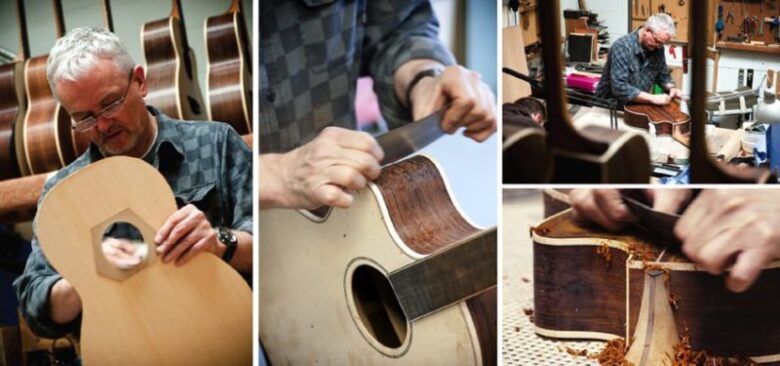
Once you start building your skill level, buy parts and kits to hone your craft. Not only will this provide you with the practice you need, but it’ll also give you a chance to see if you really enjoy it. If not, you haven’t taken any great risks and you can walk away knowing that you gave it a shot.
Apprenticeships and Connections
Building an instrument is hard, building a high-quality instrument is even harder. With this in mind, it will take time before you’re able to make money and offer your services in the making and repairing of stringed instruments. If you want to focus on repairs rather than building from scratch, this may be a little quicker and it allows you to offer a useful service to the community.
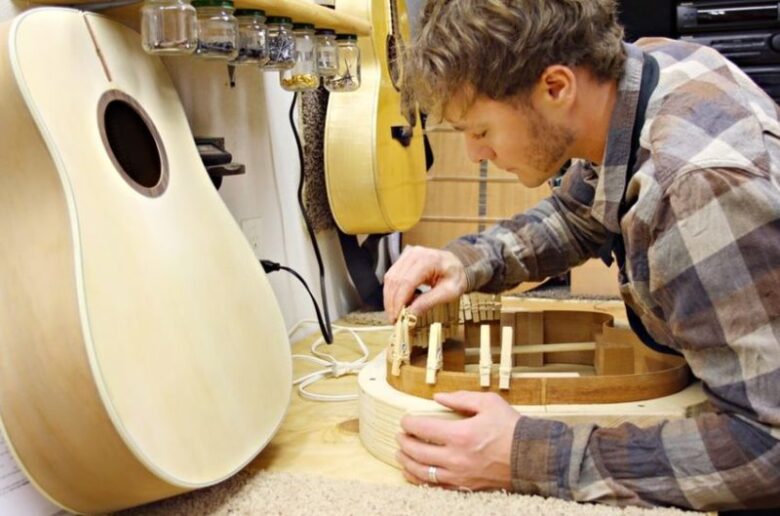
If you can get an apprenticeship with an established luthier, this will be a great first step. Normally, they will have the equipment and skills you need to improve your craft. As with any industry, it’s not what you know it’s who you know. With this in mind, we recommend connecting with people in the industry and generating friendships. If you can help them in any way, they’ll help you in return later.
Good Luck
Above all else, enjoy the journey and take advantage of this creative career path. If you work hard and are determined to become a master in art, you can become a luthier and leave that boring office job!
